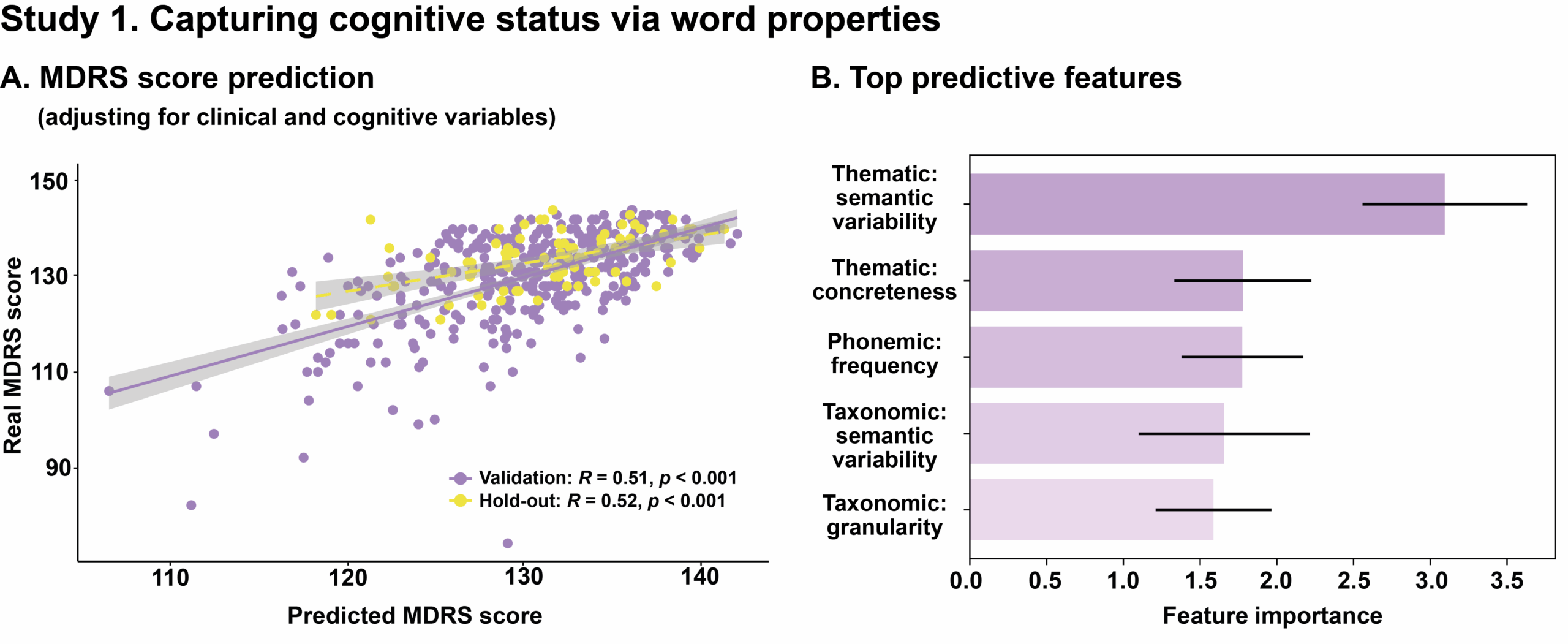Digital language measures capture episodic memory disruptions in people with human immunodeficiency virus: A machine learning study
Sterpin, L., Avendaño C., Inchauspe, J., Pérez, G., Ferrante, F., Birba, A., Gattei, A., Abusamra, L., Sampedro, B., Abusamra, V., Amoruso, L. & García, A. M. (2025). Digital language measures capture episodic memory disruptions in people with human immunodeficiency virus: A machine learning study. The Clinical Neuropsychologist.
Objetivo: El virus de la inmunodeficiencia humana (VIH) suele afectar a la memoria episódica. Sin embargo, las medidas estándar de este ámbito se derivan del simple recuento que realizan los médicos de la información recordada y omitida, lo que socava su solidez, informatividad y escalabilidad. Aquí presentamos un enfoque automatizado de procesamiento del lenguaje natural (PLN) que aborda estas limitaciones. Métodos: Reclutamos a 92 participantes (50 personas que viven con el VIH y 42 controles), que realizaron una tarea de recuento de historias. Utilizando herramientas de PLN, comparamos los recuentos y la historia original en términos de verbosidad, agudeza semántica y estructura organizativa. Resultados: Descubrimos que las personas que viven con el VIH producían menos sustantivos y tenían una menor agudeza semántica y similitud organizativa. Además, los clasificadores de aprendizaje automático diferenciaron de forma sólida entre los dos grupos. Conclusión: Estos resultados sugieren que nuestro enfoque digital puede revelar alteraciones minuciosas de la memoria episódica en personas que viven con el VIH, lo que ofrece un complemento objetivo, escalable y rentable a las pruebas cognitivas estándar.
Digital language measures capture episodic memory disruptions in people with human immunodeficiency virus: A machine learning study
Sterpin, L., Avendaño C., Inchauspe, J., Pérez, G., Ferrante, F., Birba, A., Gattei, A., Abusamra, L., Sampedro, B., Abusamra, V., Amoruso, L. & García, A. M. (2025). Digital language measures capture episodic memory disruptions in people with human immunodeficiency virus: A machine learning study. The Clinical Neuropsychologist.
Objective: Human immunodeficiency virus (HIV) often affects episodic memory. Yet, standard measures of this domain are derived from clinicians’ simple counts of recalled and omitted pieces of information, undermining robustness, informativeness, and scalability. Here, we present an automated natural language processing (NLP) approach that tackles such limitations. Methods: We recruited 92 participants (50 people living with HIV and 42 controls), who performed a story retelling task. Using NLP tools, we compared the retellings and the original story in terms of verbosity, semantic acuity, and organizational structure. Results: We found that people living with HIV produced fewer nouns and had poorer semantic acuity and organizational similarity. Moreover, machine learning classifiers robustly differentiated between the two groups. Conclusion: These results suggest that our digital approach can reveal fine-grained episodic memory alterations in people living with HIV, offering an objective, scalable, and cost-effective complement to standard cognitive testing.



